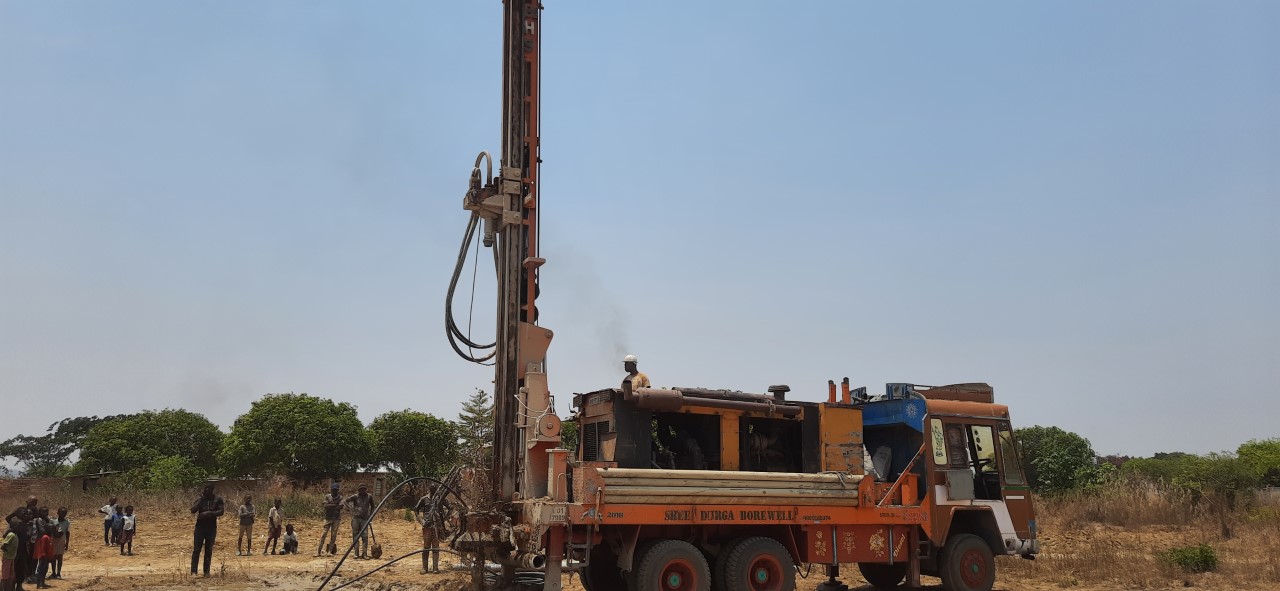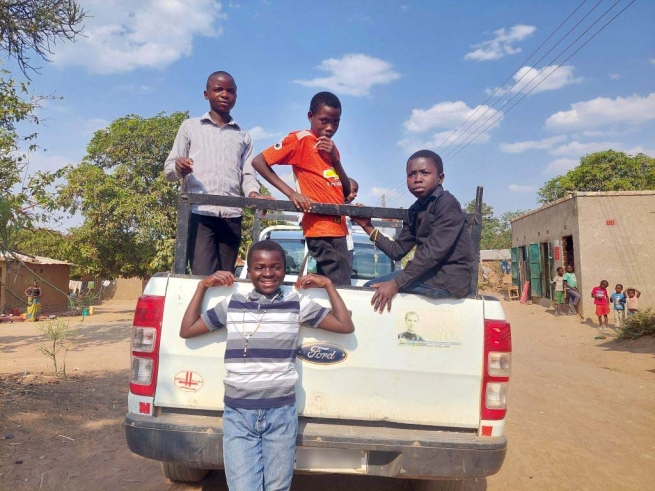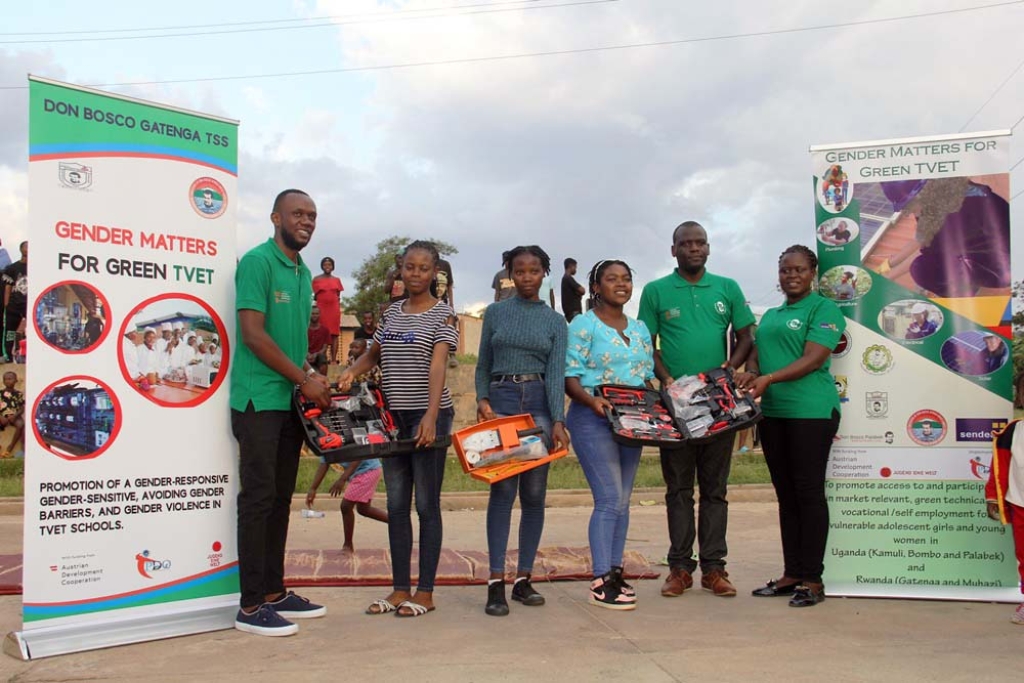GLOBAL: Salesian Missions highlights educational and social programs for poor youth on International Day of Charity
(MissionNewswire) Salesian Missions joins the United Nations and international organizations around the globe in honoring the International Day of Charity celebrated each year on Sept. 5. The date was chosen by the General Assembly of the United Nations to commemorate the anniversary of the passing of Mother Teresa of Calcutta. She received the Nobel Peace Prize in 1979 “for work undertaken in the struggle to overcome poverty and distress, which also constitute a threat to peace.”
Mother Teresa was a nun and missionary who devoted herself to helping the poor. In 1948 she became an Indian citizen and founded the order of Missionaries of Charity in Kolkata (Calcutta) in 1950 which was noted for its work with the poor and the dying. For more than 45 years she took care of the poor, sick, orphaned and dying while also guiding the Missionaries of Charity’s expansion. The organization first expanded throughout India and then into other countries and included hospices and homes for the poor and homeless. Mother Teresa’s work has been recognized and acclaimed throughout the world.
According to the United Nations, “The International Day of Charity was established with the objective of sensitizing and mobilizing people, NGOs and stakeholders all around the world to help others through volunteer and philanthropic activities.”
Charity, as defined by the United Nations, includes volunteerism and philanthropy and aims to alleviate the worst effects of humanitarian crises and supplement public services in health care, education, housing and child protection. The United Nations also notes that charity promotes the rights of the marginalized and underprivileged and spreads the message of humanity in conflict situations.
Nearly 30,000 Salesian priests, brothers, sisters and novices are working in more than 130 countries around the globe bringing poor youth and their families education, workforce development and social programs. They work in some of the most challenges circumstances and are among the first responders during humanitarian crises or natural disasters.
“Education is always our primary focus, but we know youth are dealing with much more than just needing access to education,” says Father Mark Hyde, director of Salesian Missions, the U.S. development arm of the Salesians of Don Bosco. “Salesian missionaries work to meet basic needs like shelter, food and medical care while also working to ensure that humanitarian aid reaches those who need it most.”
In honor of the International Day of Charity, Salesian Missions highlights its unique educational and social programs that are helping poor and at-risk youth meet their basic needs, receive an education and find a path out of poverty, bringing them hope for the future.
EL SALVADOR
El Salvador is one of the most violent countries in Central America along with Honduras and Guatemala. FUSALMO, a Salesian-run organization, offers traditional and non-traditional educational opportunities for at-risk youth in communities within San Salvador. Through recreational programs, enrichment opportunities in the arts and music, vocational training and more, youth are able to stay off the streets, learn to cooperate and co-exist and gain the skills they need to become productive, contributing members of a more peaceful society. Founded in 2001, the organization has positively impacted the lives of more than 265,000 children and their families.
FUSALMO works to address the root causes of poverty, inequality and violence and give youth a chance for a better life in their own communities. Through the organization’s Don Bosco Youth Integral Program, three sports centers were developed in Soyapango, San Miguel and Santa Ana benefitting more than 55,000 youth. The sports centers offer youth a safe space to connect with their peers, access to supportive adults and various training opportunities on topics such as creating a culture of peace, vocational guidance, adapted physical education, sports, technology, labor, culture and others.
INDIA
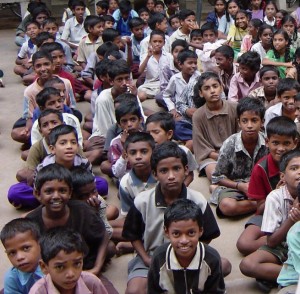 The Salesian-run Bangalore Oniyavara Seva Coota (BOSCO), located in Bengaluru (formerly Bangalore) and the third most populous city in India, serves child laborers, victims of child abuse and youth who are orphaned, abandoned or live on the streets. Nine BOSCO rehabilitation centers and six outreach hubs are spread throughout the city to assist these children in need.
The Salesian-run Bangalore Oniyavara Seva Coota (BOSCO), located in Bengaluru (formerly Bangalore) and the third most populous city in India, serves child laborers, victims of child abuse and youth who are orphaned, abandoned or live on the streets. Nine BOSCO rehabilitation centers and six outreach hubs are spread throughout the city to assist these children in need.
During its nearly 40-year history, BOSCO has helped improve the lives of more than 125,000 children and rescues and rehabilitates close to 7,000 children each year. Many children living on the streets are runaways who have left home in search of work or to escape violence or other family difficulties. According to UNICEF, more than 40,000 children are reported missing every year in India. Of these, close to 11,000 remain untraced. As many cases go unreported, it is suspected that the actual number of missing children is much higher. Many runaways come to major cities like Delhi, Mumbai, Kolkata and Bengaluru in search of work and a better life. The majority of them live on the streets and on the country’s railway platforms where they beg, steal or perform menial jobs to survive. All too often, they fall victim to child traffickers.
Once youth are identified by BOSCO and convinced to come in off the street, their basic needs are provided for including housing, food and clothing. In addition, they receive counseling and, if appropriate, are reunited back with their families. Education is also a primary component of BOSCO and is provided to those in the rehabilitation program while those who are returned to their families have access to Salesian schools throughout India. Youth who continue their education are more likely to find and retain stable employment later in life and break the cycle of poverty.
KENYA
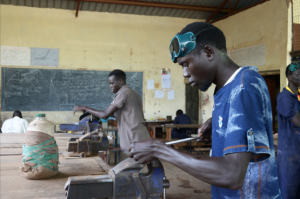 The Kakuma refugee camp was established in 1992 near Kenya’s border with South Sudan and was a place of refuge for unaccompanied minors fleeing warring factions in what was then southern Sudan. Today, the Kakuma refugee camp has more than 185,000 refugees, well over the 120,000-person capacity for which it was built. More than 44 percent of the refugees at the camp are from South Sudan and arrived after fleeing the country to escape conflict and violence.
The Kakuma refugee camp was established in 1992 near Kenya’s border with South Sudan and was a place of refuge for unaccompanied minors fleeing warring factions in what was then southern Sudan. Today, the Kakuma refugee camp has more than 185,000 refugees, well over the 120,000-person capacity for which it was built. More than 44 percent of the refugees at the camp are from South Sudan and arrived after fleeing the country to escape conflict and violence.
Kakuma is operated by UNHCR in collaboration with Salesian missionaries in the country as well as several other humanitarian organizations. The camp offers refugees safety, security and life-saving services such as housing, health care, clean water and sanitation. Salesian missionaries at the Kakuma refugee camp operate the Holy Cross Parish and the Don Bosco Vocational Training Center where 1,044 young men and women are receiving critical employment and life skills. There are many courses available and those studying welding, carpentry and bricklaying often utilize their new skills helping to build infrastructure within the camp. Salesian missionaries are in the process of building a new school on a donated plot of land at the refugee camp in order to meet the growing demand.
SIERRA LEONE
Salesian missionaries have been serving in Sierra Leone since 2001 when they began working to rehabilitate former child soldiers. In the years since, Don Bosco Fambul, located in the country’s capital city of Freetown, has become one of the country’s leading child welfare organizations—offering food, clothing, crisis intervention services, shelter, educational opportunities, long-term counseling and family reunification.
Don Bosco Fambul reaches out to an estimated 2,500 street children in the region each year. Transformation for street youth starts with Salesian rehabilitation and reunification programs operated at Don Bosco Fambul. The success of the street children rehabilitation program is credited to the organization’s holistic approach focusing on meeting basic needs (food, clothing and a safe place to sleep) as well as personalized medical, psychological, pedagogical, social and spiritual care. The gradual rehabilitation process includes formal classes, daily games, sports, music, singing, drama, dancing, counseling and prayer. Parents and extended families are contacted several times by social workers before final reunification.
###
Sources:
ANS Photo (usage permissions and guidelines must be requested from ANS)
INDIA: BOSCO Helps to Provide a Second Chance for At-Risk and Marginalized Youth


